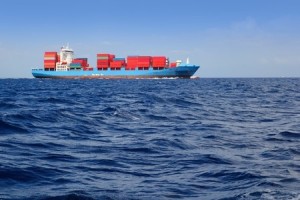 The What’s, Why’s, When’s, Where’s and How’s of ocean cargo insurance can present a very confusing picture if you don’t do your research. But the truth is that if you don’t have it at all, you could end up partly responsible for the loss of a sunken cargo ship, as well as your own shipped items. That could cost you quite a bit of money, and it’s just not worth the risk.
The What’s, Why’s, When’s, Where’s and How’s of ocean cargo insurance can present a very confusing picture if you don’t do your research. But the truth is that if you don’t have it at all, you could end up partly responsible for the loss of a sunken cargo ship, as well as your own shipped items. That could cost you quite a bit of money, and it’s just not worth the risk.
Carol Tice, CEO of Tice Writes, Inc., in her article “Does Your Business Need Cargo Insurance?” tells the story of Steve Klinger, the operations director of Third-Party Logistics Company Cargo Services in Indianapolis. He had a cargo customer who experienced the shelling of a cargo ship that happened to be carrying his merchandise, which was headed for Libya. Shortly after the incident, this customer, who was just a small-time exporter, was sent a bill for his business’s portion of the replacement costs for the multi-million dollar ship. This kind of thing could wipe out your business if you aren’t insured.
Cargo insurance is still bound by ancient maritime laws. The “general average” rule applies. This means that if a ship carrying your goods becomes damaged at sea, or if cargo must be thrown overboard to save the ship, all the customers must share in covering the company’s losses. That could run into the millions and completely ruin a business. If you’re filling out a coverage form and you miss checking a certain box, or if you make the mistake of assuming that your manufacturer has taken out insurance when he hasn’t, you can be in serious trouble. You must read insurance policies very carefully.
If your are importing, it is often recommended that the exporter take out the insurance, so you don’t have to be the responsible party. But keep in mind that outside the US, foreign exporters use insurers in their own countries, and you might run into problems there. If you have your own insurance from the US, at least you have an advocate here, someone with only your interests in mind. In this case, you have United States and state laws in your corner.
If you are a small US exporter, it is possible for you to ask that your customers carry the insurance responsibility from the time the purchases leave your hands. There should be clarification of this in your terms of sale.
Some insurance policies do not cover all types of transport, and do not consider things like theft, damage in transit, acts of God and natural disasters, or accidents involving insured goods. In this case you might want to choose an “all risk” policy.
Since cargo insurance is not heavily regulated, prices can vary. It is always wise to shop around and know what questions to ask when purchasing insurance. As with any kind of insurance, make sure you read the fine print and know exactly what is covered and what isn’t.
The bottom line is that your goods should be insured, and you should be aware of who is carrying the responsibility. It need not be an overwhelming chore if you research the insurers, read the policies carefully, and be sure to protect yourself and your merchandise.
